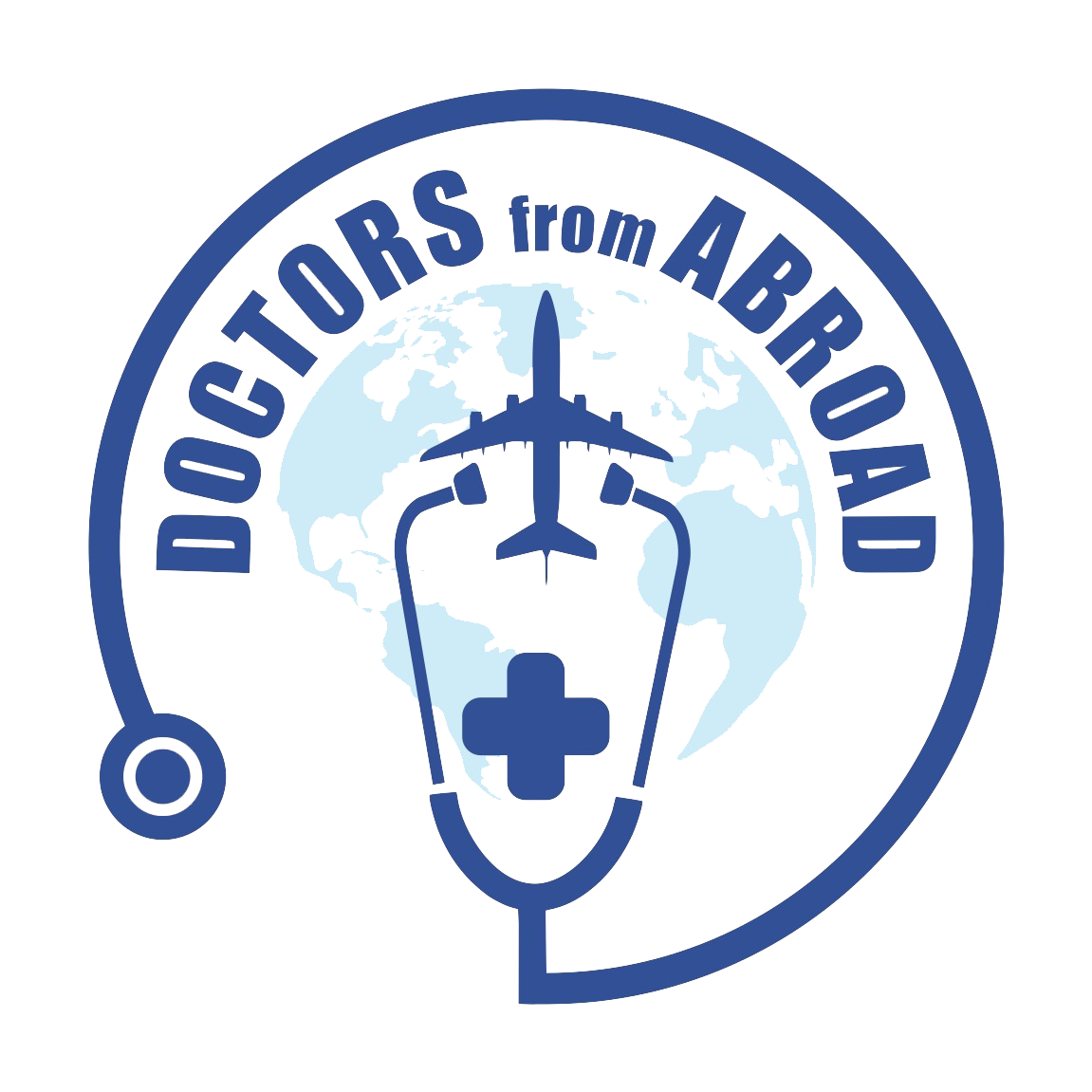ABOUT uzbekistan
Uzbekistan, a culturally rich and historically significant country in Central Asia, has become an attractive destination for international students pursuing an MBBS degree. Bordered by Kazakhstan, Kyrgyzstan, Tajikistan, Afghanistan, and Turkmenistan, Uzbekistan offers a unique blend of ancient heritage and modern development. Its capital, Tashkent, serves as a vibrant political and economic center. Renowned for its high educational standards, particularly in medical education, Uzbekistan boasts prestigious institutions like Tashkent Medical Academy and Samarkand State Medical Institute, which provide comprehensive programs in English. The affordable cost of living, combined with the country's safety and the warmth of its people, makes Uzbekistan an ideal place for students. With its mix of modern amenities and rich cultural experiences, students in Uzbekistan can enjoy a fulfilling and well-rounded educational journey.
MBBS IN UZBEKISTAN
Pursuing an MBBS in Uzbekistan has become an increasingly popular choice for international students due to its affordable tuition fees, high-quality education, and the presence of several globally recognized medical universities. The country's medical programs are structured to align with international standards, providing a comprehensive curriculum that includes both theoretical knowledge and practical clinical experience. Many universities in Uzbekistan offer courses in English, making it accessible to a diverse student body. Additionally, the country’s rich cultural heritage and welcoming environment create a supportive atmosphere for students. With a growing focus on modernizing its educational infrastructure, Uzbekistan presents a promising destination for aspiring medical professionals.
COMPARING MBBS IN UZBEKISTAN AND MBBS IN INDIA
Here's a comparison table between pursuing an MBBS degree in Uzbekistan and India:
| Aspect | MBBS in Uzbekistan | MBBS in India |
| Duration | 5+1 years | 5.5 years (including 1 year of internship) |
| Eligibility | Completion of 12th grade with PCB; NEET qualification | Completion of 12th grade with PCB; NEET qualification |
| Language of Instruction | English, Uzbek, Russian | Primarily English |
| Tuition Fees | $2,500 - $4,000 per year | INR 1,00,000 - 10,00,000 per year (varies by institution) |
| Cost of Living | $300 - $500 per month | INR 15,000 - 25,000 per month |
| Admission Process | Less competitive, direct admission | Highly competitive, centralized counseling via NEET |
| Recognition | Recognized by WHO, MCI/NMC; must pass FMGE/NExT to practice in India | Recognized by MCI/NMC; directly eligible to practice |
| Medium of Communication | English widely spoken among students and faculty | English widely spoken among students and faculty |
| Clinical Exposure | Adequate but may vary by university and location | Extensive and diverse clinical exposure in various hospitals |
| Internship | Internship included in the course duration | 1-year mandatory internship included in course duration |
| Post-Graduation Options | Option to pursue PG in India or other countries after FMGE/NExT | Directly pursue PG through NEET-PG or INI-CET in India |
| Cultural Experience | Exposure to Central Asian culture, potential language barrier | Diverse cultural experience within India |
| Travel Distance | Further from India, requiring international travel | Domestic travel within India |
| Quality of Education | Varies significantly by university; some institutions are highly reputable | Generally consistent quality with established top institutions |
| Safety and Comfort | Generally safe, but cultural adjustment needed | Generally safe, familiarity with culture7////////// |
WHY STUDY MBBS IN UZBEKISTAN ?
Studying MBBS in Uzbekistan offers numerous advantages for aspiring medical professionals. The country is home to several esteemed medical universities that are recognized by international medical bodies such as the WHO and MCI. These universities provide a high standard of education with modern infrastructure and experienced faculty members. The cost of education and living in Uzbekistan is relatively affordable compared to many Western countries, making it an attractive option for students from diverse economic backgrounds. Additionally, the multicultural environment and the medium of instruction being English in many universities make it easier for international students to adapt and excel. Moreover, Uzbekistan's strategic location and cultural richness offer a unique blend of academic and personal growth opportunities, making it an appealing destination for pursuing a medical degree.
RECOGINATION OF MEDICAL UNIVERSITIES IN Uzbekistan
Medical universities in Uzbekistan are gaining increasing recognition for their quality education and modern facilities. Several of these institutions are accredited by notable international medical bodies such as the World Health Organization (WHO), the Medical Council of India (MCI), and the Foundation for Advancement of International Medical Education and Research (FAIMER). This accreditation ensures that the degrees awarded by these universities are recognized globally, allowing graduates to pursue medical careers or further education in various countries. Furthermore, the Uzbek government has been investing in improving the infrastructure and curriculum of medical schools to align with international standards. These efforts contribute to the growing reputation of Uzbekistan as a favorable destination for students seeking to pursue an MBBS degree.
ELEGIBILITY CRITERIA FOR MBBS IN UZBEKISTAN FOR INDIAN STUDENTS
Indian students seeking to pursue an MBBS in Uzbekistan must meet specific eligibility criteria to secure admission. Primarily, applicants should have completed their higher secondary education with a strong emphasis on science subjects, particularly Biology, Chemistry, and Physics, achieving at least 50% marks in these subjects. Furthermore, students need to have cleared the NEET (National Eligibility cum Entrance Test) examination, as it is a mandatory requirement for Indian students aspiring to study medicine abroad. The minimum age for applicants is generally 17 years by the time of admission. Additionally, a valid passport and necessary documentation for visa processing are essential. Proficiency in English is also required, as the medium of instruction in most medical universities in Uzbekistan is English.
LIST OF MEDICAL UNIVERSITIES IN Uzbekistan
| University Name | Location | Annual Tuition Fee (USD) |
| Tashkent Medical Academy | Tashkent | $,3,00 |
| Samarkand State Medical University | Samarkand | $3,500 |
| Andijan State Medical Institute | Andijan | $1,500 - $2,500 |
| Bukhara State Medical Institute | Bukhara | $4,000 |
| Karshi State Medical Institute | Karshi | $1,200 - $2,000 |
| Namangan State Medical Institute | Namangan | $1,500 - $2,800 |
| Fergana State Medical Institute | Fergana | $3500 |
| Termez State University | Termez | $1,400 - $2,600 |
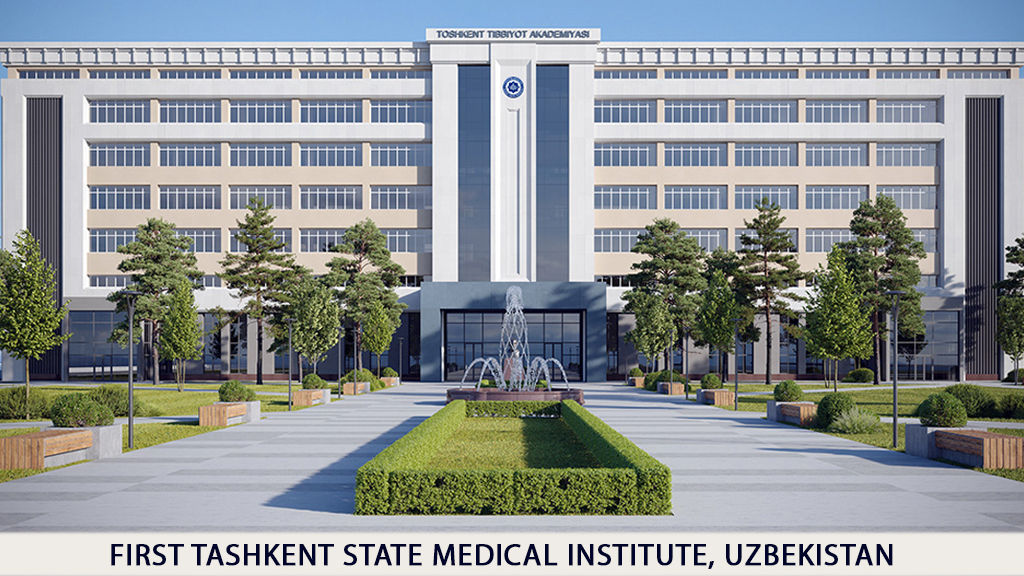
Tashkent Medical Academy (TMA)
1. Tashkent Medical Academy is one of the oldest and most prestigious medical institutions in Uzbekistan. It offers undergraduate and postgraduate programs in various medical fields including medicine, dentistry, pharmacy, and nursing.
2. Fee details: The tuition fees for international students vary depending on the program and course of study. On average, the annual tuition fee for medical programs ranges from $2,000 to $3,500.
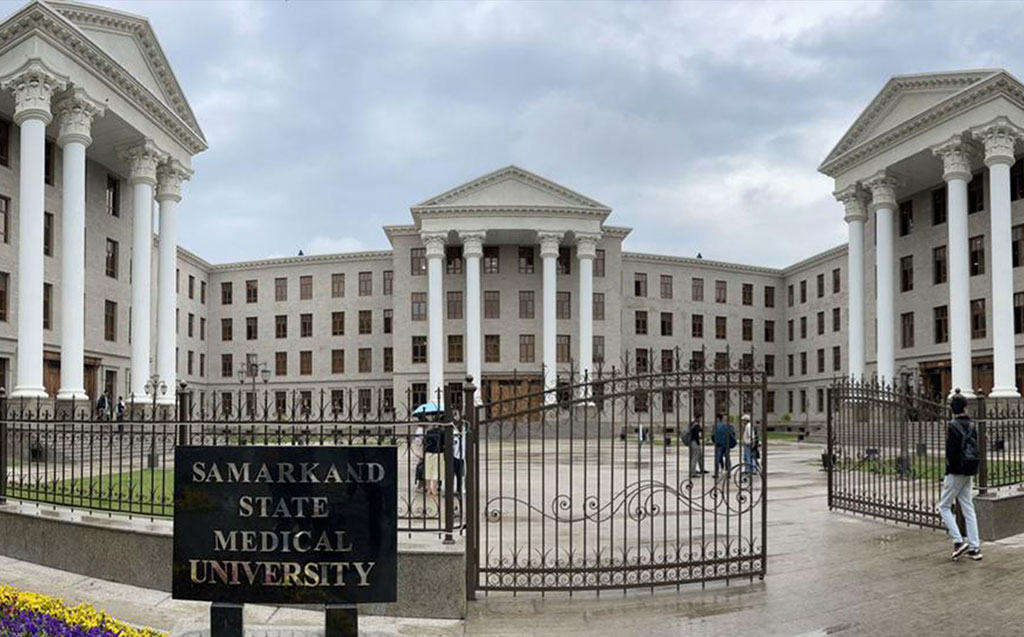
Samarkand State Medical Institute (SSMI)
1. Samarkand State Medical Institute is renowned for its quality education and modern facilities. It provides undergraduate and postgraduate programs in medicine, dentistry, and pharmaceutical sciences.
2. Fee details: The annual tuition fees for international students at Samarkand State Medical Institute range from $1,500 to $2,500 depending on the program.
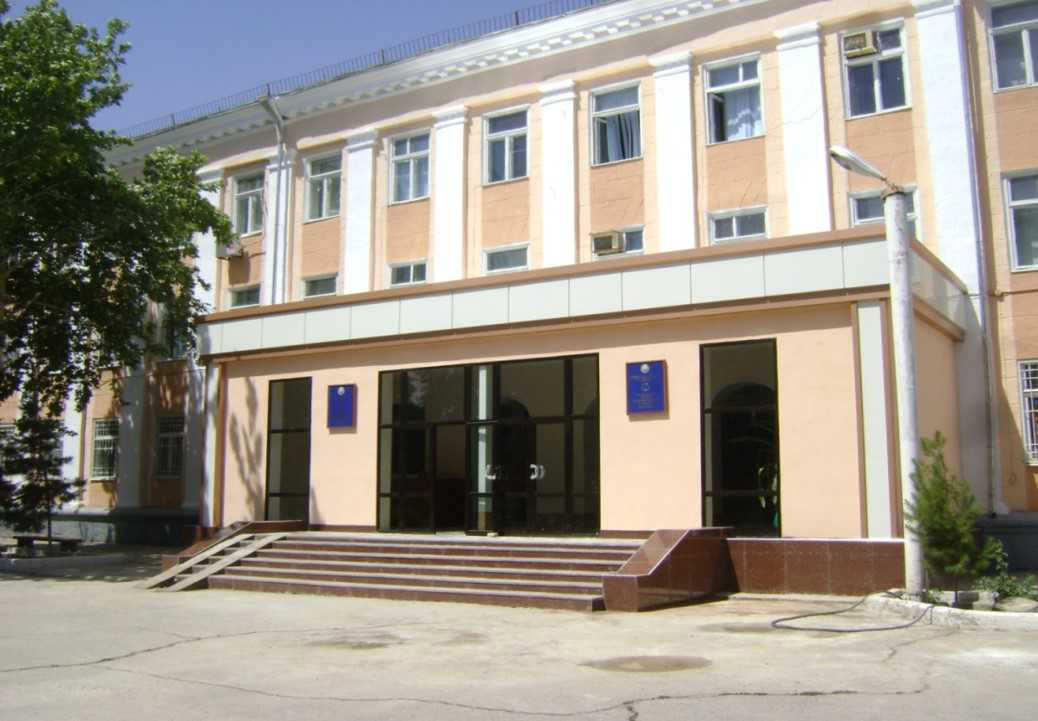
Bukhara State Medical Institute (BSMI)
1. Bukhara State Medical Institute is a leading medical institution in Uzbekistan offering undergraduate and postgraduate programs in medicine, dentistry, and pharmacy. It is known for its research-oriented approach and experienced faculty.
2. Fee details: International students can expect to pay an annual tuition fee ranging from $1,200 to $2,000 at Bukhara State Medical Institute.
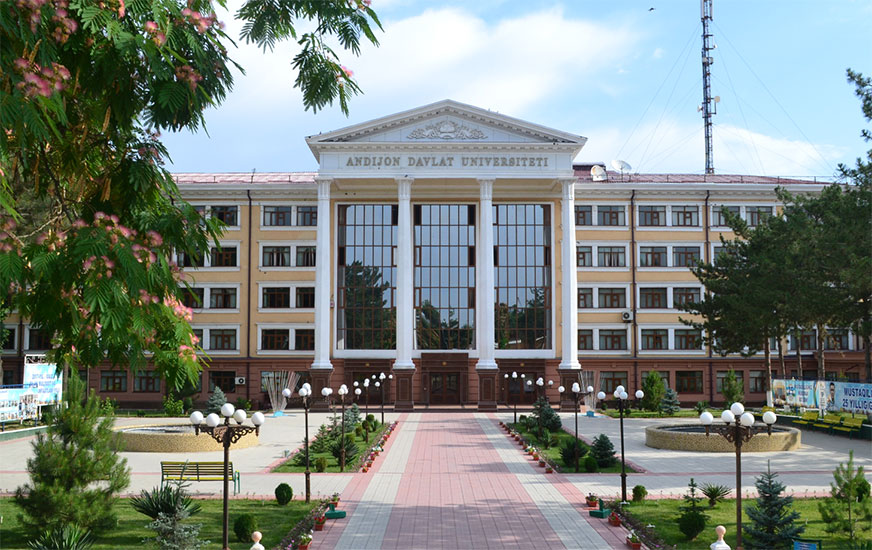
Andijan State Medical Institute (ASMI)
1. Andijan State Medical Institute is recognized for its comprehensive medical education curriculum and state-of-the-art facilities. It offers undergraduate and postgraduate programs in medicine, dentistry, and nursing.
2. Fee details: The tuition fees for international students at Andijan State Medical Institute typically range from $1,000 to $1,800 per year.
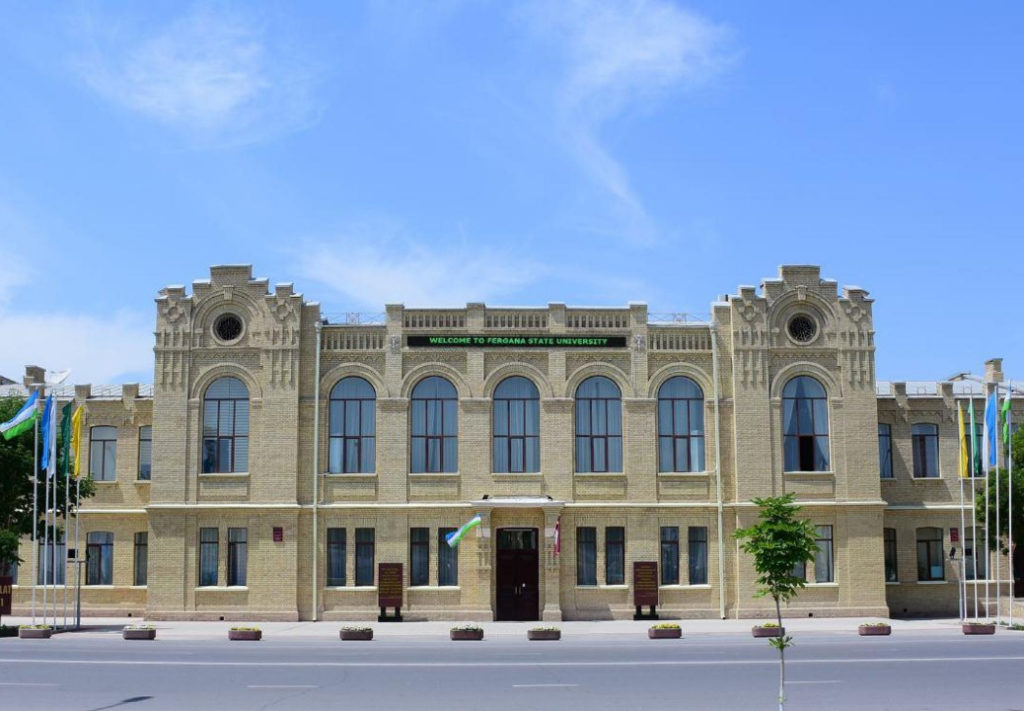
Ferghana State Medical Institute (FSMI)
1. Fergana State University's Faculty of Medicine is esteemed for its quality medical education and practical training opportunities. It offers undergraduate programs in medicine and dentistry.
2. Fee details: International students studying at the Faculty of Medicine in Fergana State University can expect to pay an annual tuition fee ranging from $1,300 to $2,200.
DOCUMENTS REQUIRED FOR MBBS IN UZBEKISTAN
ADVANTAGES AND DISADVANTAGES OF MBBS IN UZBEKISTAN
| Advantages | Disadvantages |
| 1. Cost-effective education compared to Western countries. | 1. Language barrier; most programs are taught in Russian or Uzbek. |
| 2. Recognition of degrees by international medical bodies like WHO and UNESCO. | 2. Quality of education may vary among different universities. |
| 3. Opportunity for hands-on clinical experience in diverse medical cases. | 3. Limited exposure to advanced medical technology and equipment. |
| 4. Cultural immersion and exposure to a diverse patient population. | 4. Limited options for specialization or advanced training within the country. |
| 5. Lower admission requirements compared to some other countries. | 5. Limited availability of residency positions after graduation. |
| 6. Opportunity to learn from experienced faculty members. | 6. Political instability in the region may affect the education system. |
FAQ FOR uzbekistan
1. What are the language requirements for studying in Uzbekistan?
• Most universities in Uzbekistan offer programs in Russian or Uzbek. Some may also have programs in English, but proficiency in Russian or Uzbek is often required, especially for non-English programs.
2. How much does it cost to study in Uzbekistan?
• The cost of studying in Uzbekistan varies depending on the university, program, and your nationality. Generally, tuition fees are lower compared to many Western countries, but it's essential to consider additional expenses such as accommodation, food, and transportation.
3. Are degrees from Uzbekistan recognized internationally?
• Yes, degrees from universities in Uzbekistan are generally recognized internationally. Many universities are accredited by the Ministry of Higher and Secondary Specialized Education of the Republic of Uzbekistan, and some programs may also have recognition from international bodies like the World Health Organization (WHO) or UNESCO.
4. What is the application process like for universities in Uzbekistan?
• The application process varies depending on the university and program. Generally, it involves submitting an application form, academic transcripts, language proficiency test scores, and possibly other documents like a statement of purpose or letters of recommendation. Some universities may require an entrance exam or interview.
5. Is it possible to work part-time while studying in Uzbekistan?
• Regulations regarding part-time work for international students vary by university and by the laws of Uzbekistan. In some cases, students may be allowed to work part-time during their studies, but it's essential to check with the university and adhere to any visa regulations.
6. What is the quality of education like in Uzbekistan?
• The quality of education in Uzbekistan varies among universities and programs. Some universities offer excellent educational facilities and experienced faculty members, while others may have limitations in resources or teaching quality. It's essential to research and choose a reputable university and program.
7. Are scholarships available for international students in Uzbekistan?
• Some universities in Uzbekistan offer scholarships or financial aid for international students. These scholarships may be merit-based, need-based, or awarded based on other criteria. Additionally, some governments and organizations may offer scholarships specifically for students studying in Uzbekistan.
